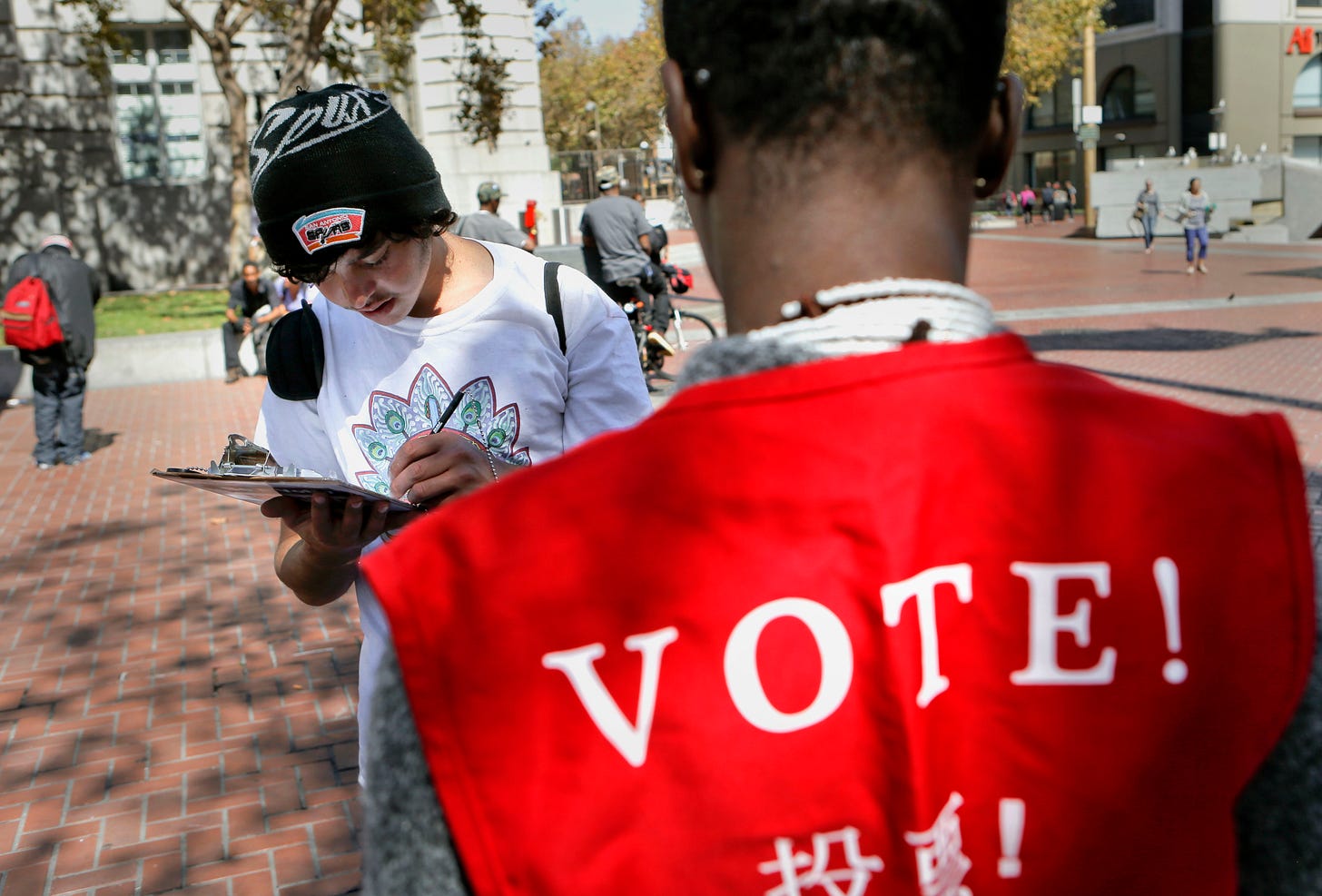The Anti–‘Rock the Vote’ Movement
Young people deserve a real voice in our democracy. Too many Republicans want to make it harder for them to vote.

YOUNG VOTERS ARE AN INCREASINGLY IMPORTANT political force—when they vote.
Hardly a week goes by without another headline highlighting their influence, and the data bear it out: The 2022 election cycle saw record-high youth turnout in some states, and more Gen Z candidates are running for office and winning.
Even former President Donald Trump recognizes this. Just a couple of weeks ago, he published a Newsweek op-ed courting young voters.
However, activists aligned with Trump are doing their best to limit young Americans’ access to voting. Recently, they have ramped up their anti-democratic attacks on young voters.
Legislation enacted this year in Idaho and Ohio dropped student photo IDs—including even those issued by state institutions—from the list of acceptable voter identification. In Texas, a Republican lawmaker even tried to remove all polling places from college campuses.
These efforts to stifle the voices of young voters aren’t isolated, and no amount of lip service from the former president can change that. They are a part of the modern anti-democracy playbook promoted by a coordinated and well-documented project.
Scott Walker, the Republican former governor of Wisconsin who now heads the conservative Young America’s Foundation, says “young voters are the issue.” Cleta Mitchell, one of Trump’s lawyers in his gambit to overturn the 2020 election, scorns young voters who “just have to roll out of bed, vote, and go back to bed.” Presidential candidate Vivek Ramaswamy proposes raising the voting age to 25.
It’s all a partisan political attempt to silence young voters, whom they evidently see as more likely to support Democrats than older voters.
Troublingly, this campaign is being executed at the very time we need more, not less, youth engagement to serve as a bulwark against autocracy.
If these attacks on youth voting continue, it could turn an entire generation away from democracy. The stakes could not be higher.
ACCORDING TO A RECENT TUFTS SURVEY, only 31 percent of young people feel confident in the future of U.S. democracy. With authoritarianism rising both domestically and across the globe, young people need to know that democracy can work for them. We can do that by ensuring young voters have a stake in our elections.
Encouraging young people to vote also builds up their civic engagement ‘muscle memory’—repeatedly exercising their right to vote—which ultimately strengthens democracy.
Embracing young voters is also the morally right thing to do. Young people go to school or work, pay taxes, need healthcare, and drive a car or use public transport. They deserve a say in how their communities are governed.
It is also worth pointing out that restricting young voters is politically myopic.
No voter, regardless of age, wants to support a candidate who openly scorns them as Trump’s lawyer Cleta Mitchell does, or puts barriers in their way to make it harder to vote. Young voters will eventually become older voters. Attacking young voters now strikes me as an incredibly cynical and shortsighted aspect of the larger effort to restrict access to the ballot nationwide.
Democrats and Republicans alike should encourage civic engagement among young Americans. There are several commonsense, nonpartisan solutions that would increase youth political engagement and fortify democracy both now and in the future.
We could start with pre-registration for 16- and 17-year-olds, which guarantees their place on the voter rolls once they turn 18. This practice has proven to increase youth turnout and democratic engagement in both red and blue states.
Same-day voter registration, already in use by 22 states and Washington D.C., is another option that has proven to be both secure and popular with young voters. Sustained civics education also increases engagement, as does removing barriers to getting acceptable forms of voter ID or registering to vote.
All of these measures would make democracy more accessible for young voters, but also for older Americans, disabled voters, Native voters, voters of color, and other Americans. Pro-democracy advocates from across the political spectrum should embrace protecting youth voters as part of the broader effort to fight for every Americans’ right to participate in the political process.
If our democratic republic is to survive this current authoritarian challenge—and not just survive, but thrive afterward—young voters need to know they belong in our democracy, too.

